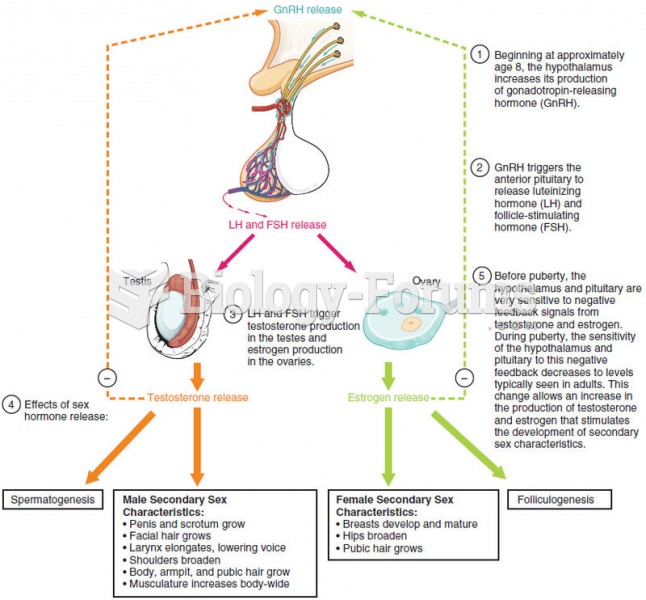|
|
|
An identified risk factor for osteoporosis is the intake of excessive amounts of vitamin A. Dietary intake of approximately double the recommended daily amount of vitamin A, by women, has been shown to reduce bone mineral density and increase the chances for hip fractures compared with women who consumed the recommended daily amount (or less) of vitamin A.
More than 150,000 Americans killed by cardiovascular disease are younger than the age of 65 years.
Lower drug doses for elderly patients should be used first, with titrations of the dose as tolerated to prevent unwanted drug-related pharmacodynamic effects.
Blastomycosis is often misdiagnosed, resulting in tragic outcomes. It is caused by a fungus living in moist soil, in wooded areas of the United States and Canada. If inhaled, the fungus can cause mild breathing problems that may worsen and cause serious illness and even death.
Malaria was not eliminated in the United States until 1951. The term eliminated means that no new cases arise in a country for 3 years.
 The testes. In addition to producing sperm, the testes secrete the male sex hormones, primarily test
The testes. In addition to producing sperm, the testes secrete the male sex hormones, primarily test
 Effects of Estradiol and Testosterone on Interfemale Aggression in Rats (Based on data from van de P
Effects of Estradiol and Testosterone on Interfemale Aggression in Rats (Based on data from van de P





